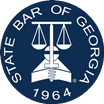Obstruction of a Law Enforcement Officer in Georgia

Law enforcement officers are here to serve the public, but sometimes people make it difficult for them to carry out their duties. When a law enforcement officer is prevented from conducting their official duties, Georgia considers it the crime of obstruction. Obstruction can be treated as either a felony or a misdemeanor in Georgia, making it crucial to hire a Georgia Obstruction Attorney to assist in defending your case.
The criminal justice system is not favorable for those that want to challenge the justice system alone, so contact Michael Fulcher Law now to speak with a knowledgeable Georgia Criminal Defense Lawyer.
What is obstruction of law enforcement officers in Georgia?
Obstruction of law enforcement officers, O.C.G.A 16-10-24, is a common additional charge in DUI and drug possession cases in Georgia. It refers to when a police officer feels that a person “knowingly and willfully obstructs or hinders” the officer when conducting their duties. This can range from violent acts like hitting or fighting the officer to minor actions like using profanity or resisting arrest.
If you knowingly and willfully obstruct or hinder any law enforcement officer in the lawful discharge of their duties, you may be guilty of Obstruction of a Law Enforcement Officer. This charge can apply to various officials, including prison guards and parole supervisors, and can be classified as either a misdemeanor or felony, depending on the nature of the obstruction.
Examples of Obstruction of an officer
There are numerous ways a person can be charged with obstruction of law enforcement officers in Georgia. Some examples include:
- Resisting arrest, whether with or without using force
- Hindering a police investigation
- Lying to an officer
- Providing false or misleading information to an officer
- Running from an officer
- Threatening an officer
- Physically assaulting an officer
Misdemeanor Obstruction of Law Enforcement in Georgia
Under Georgia law, a person will be guilty of violating O.C.G.A. §16-10-24(a) when they knowingly or willfully obstruct or hinder any law enforcement officer in the lawful discharge of their official duties. This can include actions like running, arguing, lying, or doing anything that makes it more difficult or completely prevents an officer from performing their job. Notably, you do not have to make any physical contact with the officer to be charged with misdemeanor obstruction.
What are the penalties for misdemeanor obstruction in Georgia
The penalty for a misdemeanor conviction in Georgia is significant, including a fine of up to $1,000, jail time of up to one year, or both. Additionally, the court may impose community service, anger management classes, or other punishments allowed under Georgia’s misdemeanor sentencing laws. Because of the profound consequences associated with this charge, it is essential to have skilled legal representation to navigate the complexities of your case and protect your rights.
Felony Obstruction of Law Enforcement in Georgia
Felony obstruction in Georgia is a serious offense that involves making violent contact with an officer or threatening violence while they are performing their legal duties. This includes law enforcement officers, prison guards, correctional officers, community supervision officers, probation officers, and conservation officers. Under O.C.G.A. §16-10-24(b), any act of resistance, obstruction, or opposition involving violence escalates the charge to a felony.
Penalties for felony obstruction in Georgia
Penalties for felony obstruction are severe. A first offense can result in a prison term of one to five years. Additionally, there is a mandatory minimum fine of $300. Another specific form of felony obstruction involves throwing or expelling bodily fluids or other substances at an officer, which carries the same prison term and fine. The exact penalties depend on the specific facts and circumstances of each case, making it crucial to have experienced legal representation to navigate these charges.
Obstruction of a Law Enforcement Officer During a DUI Arrest
Obstruction of a Law Enforcement Officer during a DUI arrest occurs when an individual knowingly and willfully obstructs or hinders an officer in the lawful discharge of their duties. Typically, a DUI arrest begins with a minor traffic stop, which can escalate if the officer suspects the driver is under the influence of alcohol or drugs. This situation can further deteriorate if the driver threatens or defies the officer, impeding the investigation of any potential criminal activity.
Common reasons for obstruction charges during a DUI arrest include providing a false name or other misleading information, resisting arrest, and attempting to flee from police. For instance, if an officer signals for you to pull over and you continue driving to your driveway instead of stopping immediately, you may be accused of evading police. Additionally, if you are suspected of consuming drugs to destroy evidence, this can result in obstruction charges. Providing false documentation or running from the vehicle can also lead to obstruction charges, and in such cases, the officer may resort to using a Taser.
Passengers are at risk of facing obstruction charges
Passengers in the vehicle are also at risk of facing obstruction charges during a DUI investigation. Often, passengers who exit the vehicle, attempting to protect the driver, can exacerbate the situation and be charged with obstruction themselves. To avoid further complications, passengers should stay inside the vehicle and assist in the situation by being ready to help with the driver’s bond process if needed.
Obstruction charges can complicate an already serious DUI arrest, making it essential to understand your rights and responsibilities during a traffic stop.
When does obstruction of an officer apply in Georgia?
In Georgia, obstruction of an officer applies when a person knowingly or willfully obstructs or hinders a law enforcement officer in the lawful discharge of their official duties. However, there is a narrow exception under Georgia law where obstruction is not applicable if the officer was not lawfully performing their duties, such as during an unlawful arrest or detention.
For instance, in Glenn v. State, officers made an unlawful arrest of Glenn, who damaged a patrol car in resistance. The court ruled that under OCGA §16-10-24, obstruction charges apply only if the officer is lawfully discharging their duties. Resisting an unlawful arrest or detention, using proportionate force, does not constitute obstruction.
If you believe your case involves an unlawful arrest scenario, it is crucial to consult with our obstruction of an officer Lawyers in Georgia for expert legal advice tailored to your situation.
What are possible defenses to obstruction charges in Georgia?
In Georgia, there are several possible defenses to obstruction charges that a skilled criminal defense attorney can explore on your behalf:
- Innocence: If you can demonstrate that you were not present at the scene of the alleged obstruction or that you were wrongly identified as the perpetrator, this can strongly support your defense.
- Lack of Evidence: The prosecution must prove your guilt beyond a reasonable doubt. If there is insufficient evidence linking you to the alleged obstruction, a Georgia Criminal Defense Attorney can argue for the charges to be dropped.
- Lack of Intent: Obstruction charges require that you knowingly or willfully obstructed the officer. If you can show that you did not intend to obstruct justice, this defense can be effective.
- Lack of Probable Cause: Officers must have probable cause to stop and arrest someone. If there was no probable cause for your arrest, a defense attorney can challenge the validity of the arrest and seek to have the case dismissed.
- Unlawful Discharge of Duties: If the officer was not lawfully performing their duties at the time of the alleged obstruction, such as making an arrest without probable cause, this could invalidate the obstruction charge.
Navigating these defenses requires expertise and experience in Georgia criminal law. If you are facing obstruction charges, it is crucial to consult with Michael Fulcher, serving all of Morgan County, Georgia, to develop a strong defense strategy tailored to your case.




